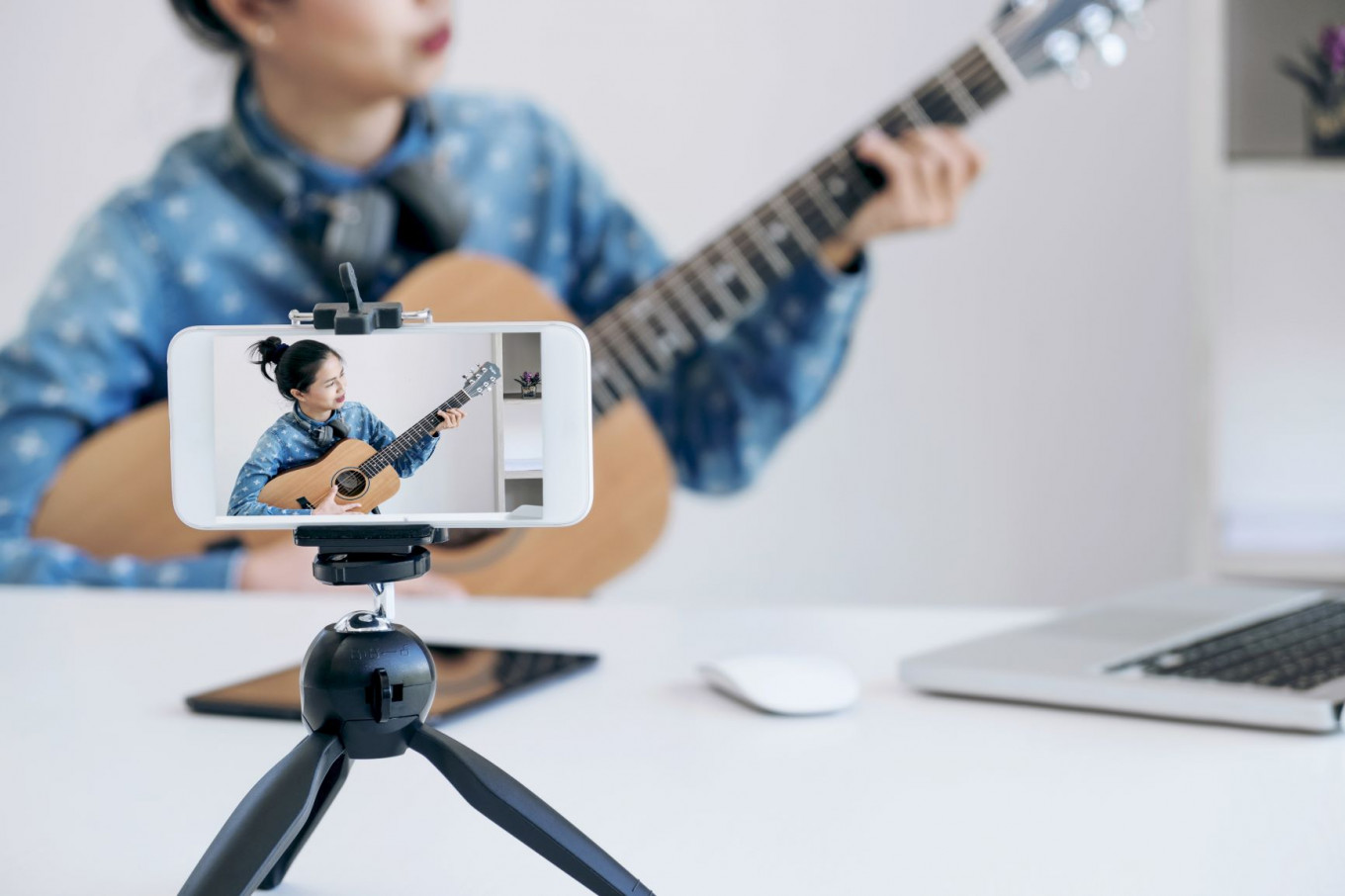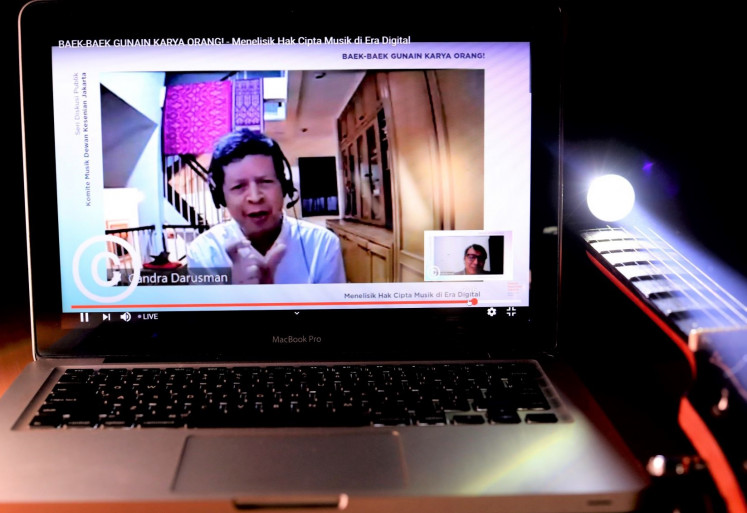Popular Reads
Top Results
Can't find what you're looking for?
View all search resultsPopular Reads
Top Results
Can't find what you're looking for?
View all search resultsMusicians push for copyright protection on digital platforms
Performing the cover version of hit songs is the simplest way to gain attention on digital platforms, but it’s not without legal risks.
Change text size
Gift Premium Articles
to Anyone
A
s musicians find a home on digital platforms in the time of the pandemic, the issues of piracy and other violations against their property and creative rights require more attention than ever.
There have been cases of music being taken down on media sharing platforms as requested by the original creators. In others, the masters were confiscated and the content creators brought to trial.
Musician and vocal trainer Indra Aziz, whose classes are available on social media and media sharing platforms, said that although such cases were not yet rampant, they have hampered the work of content creators, especially cover artists.
“For those [making a] living on digital platforms, there is a situation we call ‘content trap’,” he said in a recent virtual public discussion themed Respect Other’s Work: A Look at Music Copyright in Digital Era held by the Jakarta Arts Council (DKJ).
“Musicians have to update their content as not to lose their fans and viewers. It is impossible to release a new song every week, […] so some musicians cover a song originally recorded by a more established artists.”
Problems arise when the original artist takes the cover as a copyright violation as it was done without their prior consent.
The reason, according to Indra, is that most content creators are not familiar with the copyright system.
“They don’t see themselves as part of the ecosystem and they believe they won’t get any response seeking consent from either the original artists or collective rights management organizations,” he said.
It is a common practice for media sharing platforms and other digital platforms to partner with collective right management (LMK) firms, record labels and aggregators to check on the copyrights of the content uploaded and to take action accordingly.
Into the unknown: Music composer Candra Darusman speaks in a virtual public discussion on copyrights in the digital era. (Courtesy of Jakarta Arts Council/Eva Tobing)However, according to the speakers of the discussion, which was hosted by Cholid Mahmud, the frontman of alternative rock trio Efek Rumah Kaca and member of the new formation of the DKJ’s music committee, not all music artists have their work copyrighted.
However, musician Marcell Siahaan, the chair of Prisindo, an LMK firm, said that dragging cover artists to court was “too much”.
“Artists should consider the covers as a show of appreciation of their talent and work. There is no need to bring the matter to court,” Marcell said.
The prevailing Copyright Law, he argued, protected the intellectual property of the creators but at the same time, allowed the reuse of their work by others for social purposes.
“Even so, other artists should also consider the economic rights and the moral rights of the original creators before reusing their work, even though it is not for commercial purposes,” he added.
Copyrights can be divided into "copyrights that are economic rights", which protect the economic value of a copyrighted work, and "moral rights", which protect the moral interests of the rights’ holders.
“When it comes to the law, we focus only on [the punishment] but not on public awareness,” Marcell said.
“We have to be aware of the rules of the game. Artists should be more disciplined in registering their work [for copyrights] and cover artists should respect the artists’ rights for not wanting their works be parodied or mutilated.”
Senior music composer Candra Darusman acknowledged that the prevailing law had yet to cover digital platforms. Therefore, the Federation of Indonesian Musicians’ Unions (FESMI) representing seven professional organizations that he currently chairs made a simulation on how to improve it.
“It is not easy to come up with a strict definition of ‘exploitation’ in this current digital era. Therefore, we should involve experts from various fields to do so as it may include technology, legal and business aspects. Do keep in mind that this is a global problem and not specific to Indonesia,” he said.
Candra also pointed out that the law had yet to protect the rights of independent publishers or self-publishing artists, as well as folk songs whose original composers are unknown.
“The government is the right representative for traditional folk songs, but until today, it has not been decided which ministry or institutions should be in charge,” he said.
While revising a law might take a while, Marcell suggested that music artists should adopt ethical practices on digital platforms.
“[…] Make your intents known. Ask for permission or approval beforehand — as simple as that. In this digital era, you may easily find the artists or their management and connect with them,” he said.
“If we protect each other’s rights and value as artists, there should be no more charity concerts for music artists to help them or their family out of financial difficulties.” (ste)











